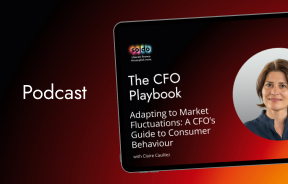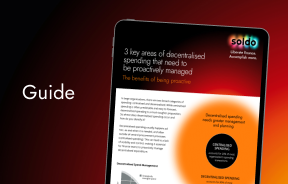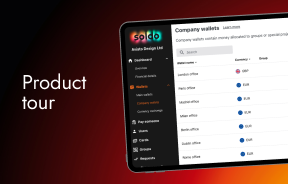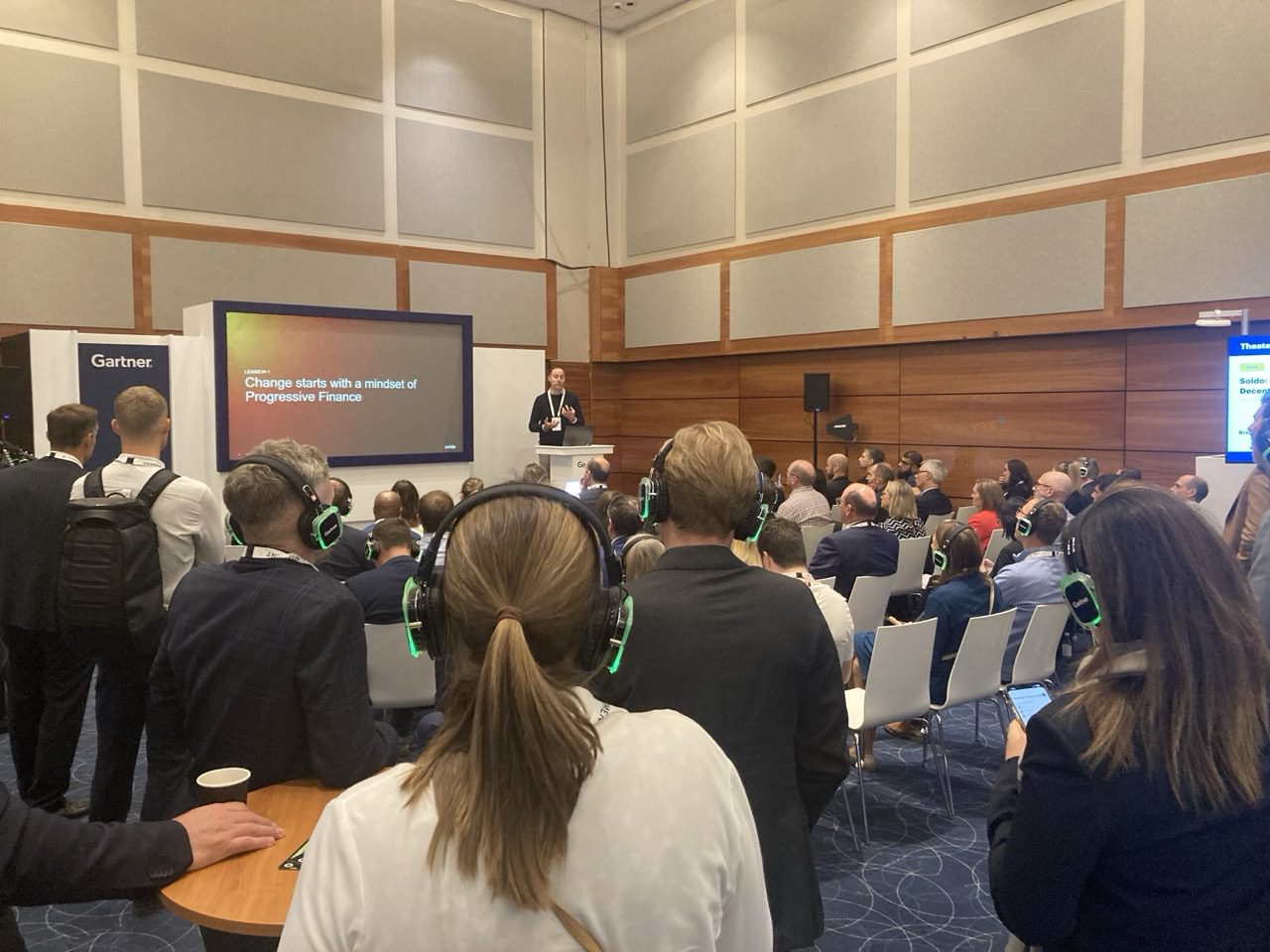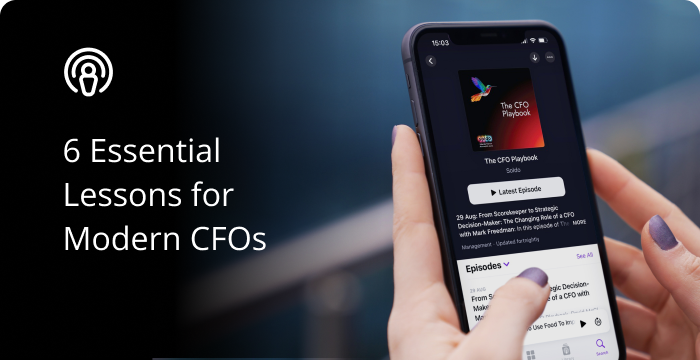An interview with Kishore Sengupta, Reader in Operations Management, Judge Business School, University of Cambridge
Kishore Sengupta’s research and consulting focuses on managerial decision making in complex and dynamic environments, to support high-performance teams and collaboration. His previous academic tenures include INSEAD France, the Naval Postgraduate School, USA and the Hong Kong University of Science and Technology. He has worked at the AT&T Network Software Center (now Lucent Technologies) and Ernst & Young; and has been published in the Harvard Business Review. In this interview with prepaid card provider Soldo, Dr Kishore Sengupta discusses what challenges remote managers might face as they enter the world of remote delegation.
Remote working is no longer a nice-to-have: it’s a part of modern business strategy and culture. But it’s a double-edged sword. Get it right and you’ll improve productivity; get it wrong and employee engagement and efficiency break down. Which is why, at Soldo, we want to provide you with more than just a toolkit for remote-workers. In this series, Soldo is working with leading academics and business experts to give you the bigger picture on remote working: from management to wellbeing, finance to HR.
What are the basic ground rules that will keep up productivity and engagement for remote-workers?
I would put forward three points.
- Routine
Work is work, home is home, and routine is important to keep it that way.
Let us start with an example. We are talking in the middle of the Coronavirus lockdown; but my department is still currently running recruitment interviews. On Monday, I did a Zoom call with one of the candidates. I have to say, I had fallen for informality and I was not dressed particularly well, whereas, even though the candidate was at home just like me, they were very well dressed. From the very next day, I thought about how I dress when I go to work. I’m not being obsessive; I just decided to at least give my appearance some consideration.
It’ll be different for everyone, but I think that’s part of the routine: if you’re going to work, go to work! For me, it was a dress code; for others it might be time allocation. Whatever it takes for each individual to create their sense of routine, it’s to be encouraged.
- Focus
Remote working is a chance to appreciate the value of depth rather than breadth.
This is a blessing. I think we do far too many things by default. We usually multitask, but remote working is an opportunity to move into sequential mode. Multitasking means doing lots of tasks, constantly changing focus and usually doing everything competently but not spectacularly. Instead, in sequential mode, some things won’t get done, but what does get done will get done very, very well.
- Freedom
Everyone is going to need to dig deep to find the resilience to make the transition to remote working.
That can be balanced with a clear articulation of freedom from business leaders. Tell employees that they can go out for a walk if they want to. Arrange for a loosening of the official nine-to-five. Give teams the freedoms that will help them manage their work and home lives effectively, because this will yield dividends to the business as a whole.
Leaders, more than anyone, must dig deep into their own reserves of resilience and discover a little more self-sufficiency than they were used to.
How can business leaders make the most of a remote-working environment?
I don’t think we can underestimate the effect of having fewer people around us. Leaders, more than anyone, must dig deep into their own reserves of resilience and discover a little more self-sufficiency than they were used to.
The way that I am using the term resilience is very specific. If you think about the life of a senior leader, they are always surrounded by people. There’s always somebody to bounce an idea off, there’s always someone to lean on. You can always have a conversation when you need advice.
Senior leaders have a structure they can lean on which they often won’t even realise that they depend on. In theory, that structure persists when leaders work remotely; in practice the immediacy of it disappears. Leaders really have to recognise this and find the resilience to adjust.
It’s almost a characteristic of the best leaders that they surround themselves with advisors and people with ideas…
Yes – I think a lot of leaders, almost by self-selection, are either extroverts or derive energy from the people around them. In a dispersed workforce, those people are no longer around. Teams and Slack are great, but they won’t cut it for replacing the hub and the buzz of those relationships.
How can managers operate at a distance and achieve all the things that they usually do?
You have no choice but to delegate.
Often managers will say that they are delegating, but then they’ll micromanage; stepping in as soon as they see any deviation from what they would call correct practice. I think the opportunity for that interventionism is disappearing – which is good for everyone!
I actually think that the idea of people working by themselves is therefore a blessing in disguise: it’s teaching managers to trust others who are also working by themselves.
The journey to that trust means watching out for three dynamics which change when we work at a distance:
- Informational cues
If we were talking face-to-face, I would know how you are reacting to what I’m saying: am I getting a glimmer of interest, am I boring you, is it even relevant? In the remote context, that’s at least partly missing. The information cues that we rely on in everyday interactions are missing. Even with good technologies, there’s a lag or a latency which does funny things to our thinking. We tend to jump to the wrong conclusions – why has someone not replied or responded? This lack of basic informational cues is dangerous to our ability to think clearly. It is essential to slow down and not jump to conclusions.
- Interactions
We exchange information in everything that we do; and that information then shapes how we subsequently interact with each other. For example, consider that someone has just read my email and sent me some feedback. If there is something about the tone or the spirit of the words they have used that bothers me, that might then drive my next interaction with that person. When I write my next email, maybe there will be an edge to it, or a degree of formality that we previously did not use. Interactions become dysfunctional, and each small degradation amplifies the feeling further. Again, pause: take a step back, be aware of the issue and avoid overreacting.
- Getting personal
When pressure from these first two issues – information and interaction – build up, things can get very personal, very quickly. When times are good, we naturally interpret information in a positive way; and this can be sustained without face-to-face contact. But when there are hitches, challenges or bottlenecks, things can turn sour. I’ve seen this many times in virtual teams, especially those working across different time zones. They don’t see each other; sometimes they don’t even know each other. And when there is a problem they quickly jump to attribution and blame.
So these are the three remote working challenges: we don’t have the same degree of emotional information, this affects how we react to each other, and combined we are likely to draw amplified or inaccurate conclusions about other people’s intentions in a personal way. Working at a distance, leaders must be conscious of all of these and actively mitigate against them.
So digital tools are a potential amplifier of miscommunication. But worse, the rules that we rely on for a calm, productive workplace disappear when we go remote as well. Remote and home workers may be operating in wildly different environments.
This is true. We take each other for granted. How often is somebody going to be in a tricky situation? Maybe a colleague hasn’t had a good day. Maybe there’s trouble at home, or with the children. It may not be a crisis, but there’s usually something.
Sadly, we don’t take the time to be more human towards each other when we’re in the workplace. The rules of the workplace have made us perfunctory – “How are you” should have more genuine meaning. I hope that the prevalence of remote working improves how we communicate with each other.
Secondly, conventional wisdom says that at times we shouldn’t over-communicate – and I agree with this view. But with all the modern channels through which we interact like email, Slack, Teams, Zoom and Skype, we are also over-consumers of communication. There’s real danger that it takes over. There’s signal and there is noise. Information is critical, but on the one hand it needs to be accurate, on the other it needs to be salient and delivered with the right frequency.
Sometimes modern media is like a constant stream of alerts. So whilst I feel the need to communicate and I feel the need to be part of a community; let’s not make that an expectation. Instead of over-communicating, as leaders, we must communicate in context.
Conventional wisdom says that at times we over-communicate. And with all the modern channels through which we interact, we are over-consumers of communication. There’s real danger that it takes over.
But managers do have to maintain morale and offer direction, which is much harder to do at a distance.
Leaders typically run “town hall meetings” of 500+ people. There’s a quote from an ex-Microsoft employee who said that “15 minutes with someone like Bill Gates has six months of juice”. I get it: Gates has a certain way about him that inspires people, and this is useful. But I also think that a lot of these town halls and one-to-500 pieces of communication may not be the best way to handle remote teams. Often, it involves email messages which look incredibly bland. I think that smart leaders need to learn to communicate small. Narrowcasting is the way to go.
For too long leaders have engaged in broadcasting. Broadcast channels are seductive because you can reach more people – electronic channels mean leaders can run town halls on steroids. But communicating in relatively small groups is a lot more meaningful.
Now, what’s a small group? Well, this afternoon I have a Zoom call with around 50 people. I’m not going to attend: 50 people is too many and I will feel like I’m just there for the sake of it. Had it been 10, perhaps even 25, I would have joined and participated with full energy. So I would say to leaders: think about what the critical mass of people you communicate with might be.
You can convey energy far more effectively with a smaller group, particularly when you’re in a virtual room with employees who might not usually have access to a senior member of the team. They will love it – and that’s how you get commitment. You might have to run 20 sessions instead of one, but that’s surely a worthwhile investment of your time.
Leaders should also be curating, right? Sifting out the immaterial, helping people to work meaningfully without being overwhelmed…
Yes, and leaders can do that really well in relatively small online groups, or forums. I know enough of the law to say that you can’t really put a lot of this thinking into email messages that get sent out to 5,000 staff and then forwarded on externally to many more. In a small forum, you can have a proper conversation and gain a mutual perspective. It will help leaders nurture a level of collective understanding.
In terms of finances, what should companies offer to pay for, to equip their remote workers?
There is a collection of official guidance for tax purposes, but what interests me is the different experiences that remote workers have.
I know someone who works for a tech startup, who is complaining bitterly at the moment, because a perk of the office was that he got free food twice a day. Working remotely, he doesn’t get that – should the business pay for his meals or reimburse him in some way? Perhaps send him food parcels! Employees in most businesses would have very little sympathy here.
So there are many perspectives, sometimes an even distinct lack of gratitude, and above all it is important that a business treats its employees fairly across the company.
I think companies should make it clear that there are some services which are more important than others. Some will pay for broadband; some will pamper employees a little with IT equipment – both of these make sense because remote workers will be more productive with the right connectivity and computers.
Whilst we’re talking about finance, how can a CFO manage employees’ ability to spend in a remote environment? We’ve seen that managers need to learn to let go, but equally, somebody’s got to keep an eye on the purse strings.
I think this is an issue of realism. For example, consider this message from Finance: “Please make purchases electronically, but keep receipts.” How is any auditor going to question employees over individual purchases three months after the event? I’m a former auditor, so I speak both from the point of view of what I think is acceptable utility and not; and also as somebody who is concerned with compliance and governance. Systems have to be workable.
Therefore, give remote employees a budget. So long as it’s legally tenable, so long as there is compliance built around the regime, give them a budget and the freedom to spend it. Certainly, make the rules clear. Make it obvious that budgets can be used for equipment, for example, but not for other reasons; and that purchases must be tracked by the employee. But truly, I think that most people won’t misuse those freedoms. Overall, that will be more effective than layers of restrictions aiming to control costs.
KEY TAKEAWAYS
- Business leaders thrive with talent around them. Remote working is therefore a huge challenge. They must recognise this and work to replicate or maintain those advisory connections.
- Managers must trust their teams to work remotely. There are three communication “red lights” in the way to watch out for: a lack of emotional information in communications; which then affects how we react to each other, and combined leads to drawing amplified or over-personal conclusions.
- Managers are prone to over-communication. Instead of overloading multiple channels, it is better to communicate with clarity and in context.
- Similarly, instead of sending widely (and economically) to hundreds of staff, make the effort (and take the consequent cost) of speaking to smaller groups at a time. It will be more human, motivating and appreciated.
- Expense systems for remote workers must be workable. So loosen the reins and give individuals clear guidelines but plenty of freedom within them.
- Establish a routine for successful remote working.
- Remote working is an opportunity to quit multitasking and concentrate on doing a few things well.
This interview is part of a series by Soldo, the prepaid company card solution that makes your expense accounting simple. You can read more interviews from Soldo’s interview series here.










